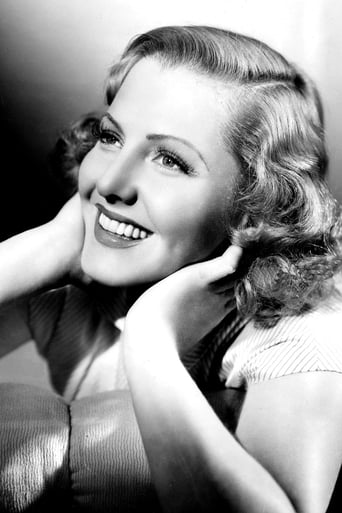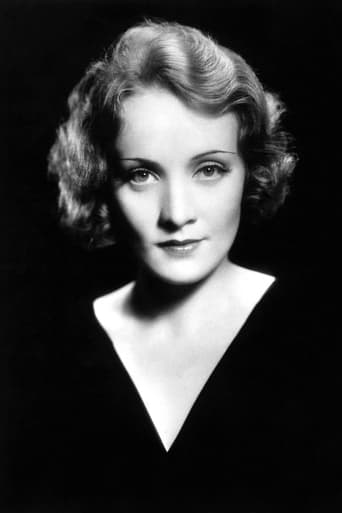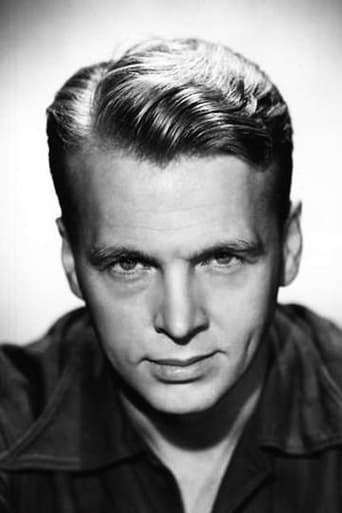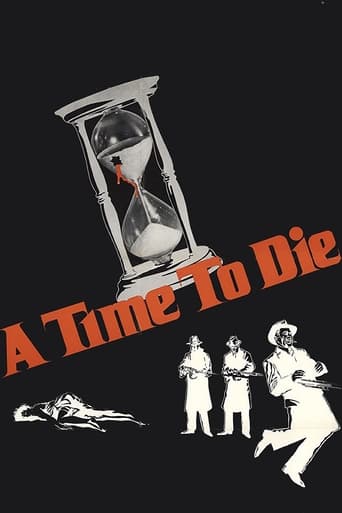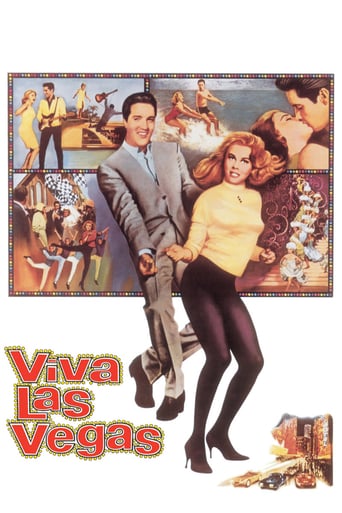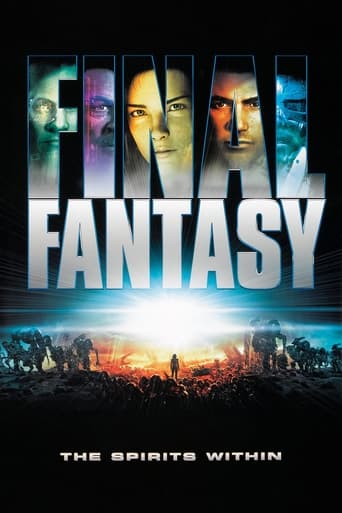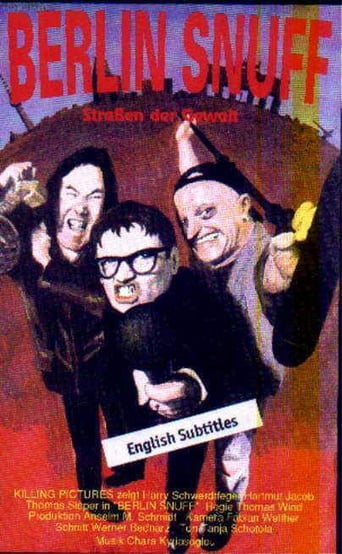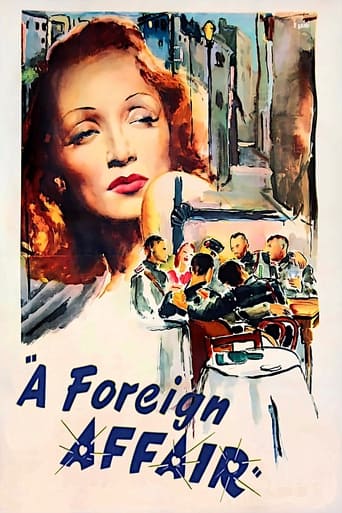
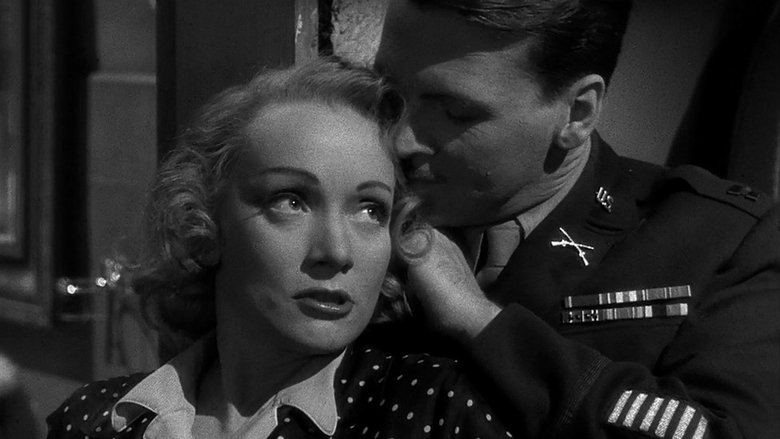
A Foreign Affair (1948)
In occupied Berlin, a US Army Captain is torn between an ex-Nazi cafe singer and the US Congresswoman investigating her.
Watch Trailer
Cast
Similar titles
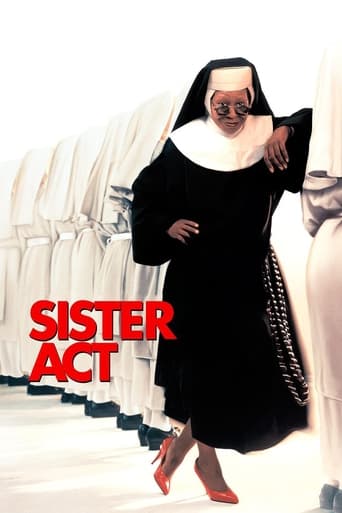
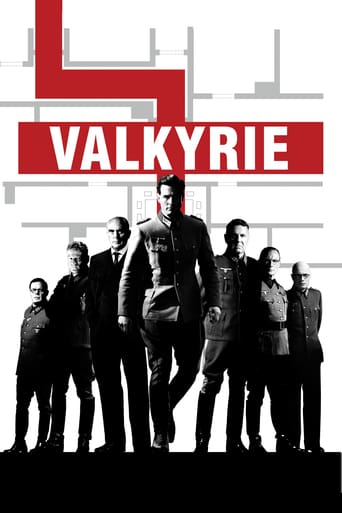
Reviews
I like the storyline of this show,it attract me so much
To me, this movie is perfection.
Slow pace in the most part of the movie.
It's no definitive masterpiece but it's damn close.
What an interesting, conflicting film this is. Jean Arthur plays a congresswoman visiting Germany after the war to check up on the troops stationed there. Marlene Dietrich is a cabaret singer rumored to have been a mistress of one of the top Nazis, and now carrying on an affair with an American officer (John Lund). As Arthur probes into Dietrich, Lund tries to run interference by getting involved with her romantically, thus setting up a love triangle.There are many great things about the film, starting with the footage of Berlin, which was still absolutely devastated by the war. It's sobering, and even as we think of the atrocities Hitler and the Nazis committed, it's still very sad. The film gives us an interesting window into the dynamics of post-war Germany. How does one sort out responsibility and guilt amongst the Germans? The simple question Lund asks Dietrich at one point, "How much of a Nazi were you, anyway?", without deep accusation in his voice or even too concerned with her answer, has a lot of depth to it. One of the difficult things to watch is American soldiers hunting down impoverished German women, and using material goods like chocolate to take advantage of them. It's cringe-worthy on its own, and then more so when the behavior is explained by saying the men had been pushing the entire war, and now hard to control by just putting a stop sign up in front of them. It may be an honest reflection of reality though, and I loved Arthur's criticism "In your admirable effort to civilize this country, our boys are rapidly becoming barbarians themselves." Lest you be outraged that the Allies, the true heroes of this war, may be unfairly treated, don't be alarmed - the American characters point out many sites of Nazi activity now mostly in ruins on a city tour, and allude to their atrocities. I thought the balance was good, and frankly pretty amazing considering director Billy Wilder was Jewish, and lived in Austria and Germany until leaving for Hollywood at 27 in 1933.Marlene Dietrich is iconic, and as a German-American who had to be convinced to take the part of a Nazi collaborator since the idea was so repugnant to her, her performance is filled with soul and depth. I loved the scenes with her singing in the cheap, crowded, and smoky Berlin nightclub, and the move she makes to take a puff on a cigarette before putting in into her pianist's mouth is silky smooth. There is something magical about her performances, and her world-weary, sophisticated character in general. And how ironic is the 'grandfather' comment an officer makes at the end, when Dietrich in real life was just about to become a grandmother?I was intrigued by the contrast between Jean Arthur and Dietrich in the same film, and I loved the fact that they were 48 and 47, respectively. Unfortunately, I was less of a fan of Arthur here, and it kills me to say that. I think the biggest issue was with the role itself, which has her character going from serious congresswoman to puddle of goo after the smallest overture by Lund. Suddenly she can't even dress or apply lipstick without his assistance, nor resist his advances. As an actor she ends up being caught in the middle - not serious enough to deliver a performance which would have further delved into the realities of war amidst the rubble, but not charming enough to be truly endearing. She just doesn't have chemistry with Lund, and her performance of the "Iowa Corn Song" is not great, to put it mildly. The situation she ends up in following a raid of the cabaret is contrived, though how the love triangle plays out is reasonably good, and Arthur delivers in her somber moments.Overall, a film that gives you post-war Berlin, Dietrich singing in a smoky cabaret, and some food for thought. It's flawed and feels too light, but to show more of the reality of the devastation and squalor may have been too much. Wilder gets his points in, and tells us a story on top of it. It also stuck with me.
'A foreign affair' provides good entertainment in a typical mid 20th-century style. Showing morals and attitudes that aren't ours anymore. Marlene Dietrich's sparkling presence fits in well, lifting 'A foreign affair' up to its timeless dimension.Maybe a little history comes in handy as well: situated in the war-torn Berlin of 1947. 'A foreign affair' deals with the desperate poverty of the German civilians who survived the Second World War. It was 'Stunde null' (= zero hour) for them: the war lost, about 35% of their country annexed by other nations, the cities destroyed, a poor living from day to day without steady earnings, and the women permanently at risk of sexual abuse by the occupying foreign soldiers.
Let me state this at the beginning: I am not a particular fan of post-war movies because WWII was a very infamous page of history. Whenever I encounter a story from that period, I prepare myself for heavy experience and get loaded with hard reflections. However, A FOREIGN AFFAIR has been one of the exceptional movies. Being inspired by the original story by David Shaw and masterfully directed by genius director Billy Wilder with the clever screen play by Charles Brackett, the film stands out as a unique production. Although the action is entirely set in the 'ruins of Berlin' where people suffer the consequences of the war, one gets an unforgettable insight into the characters. Through the authentic depiction of the times, we are led to certain characters in a natural manner, the characters who act differently; yet...something links them...something that you, as a viewer, must find out yourself.To start with, let me refer to the major idea of the plot because without it, I would not be able to discuss the core point of the story. The American Congress sends a committee to the divided Berlin where they are supposed to investigate the morale of American soldiers. In other words, their task is to eliminate the 'moral malaria' that, according to the great legion of decency, is more dangerous than anything else. Among them is a charming lady, Ms Phoebe Frost (Jean Arthur) whose determination in questioning will soon turn into passion in kissing. And...what they discover in the ruins of Berlin is an outrageous scandal that resembles the very violation of the law, the very default of moral decency - immoral bars with 'forbidden entertainment.' It occurs the the infamous Lorelei bar is visited by American captains... Isn't the fact about Republicans being kissed by former Nazi women truly subversive?The change that is depicted in Ms Frost is a clear message of the movie which says openly: desires far beyond regulations, humanity far beyond the law, the mutual far beyond the divided. From today's perspective, we look at it in a different way; this idea is more obvious to us. But in 1948 when the division of Berlin was the new political situation, it demanded a great courage to make such a film! That aspect which so authentically manifests the German situation after the war was nicely executed in the scene between Phoebe and Captain Pringle - their first love moment in fact. Being angry about the amount of work she does for investigation, Pringle asks her what she does anything for normal human reactions like laugh or tears. Then, in the witty moment, the shelves trap the young fragile beauty and... they kiss. Here, her rules give in at last! New York Times reviewer Bosley Crowther praised the job of the movie by saying: "Particularly, their interest is in how human beings behave when confronted by other human beings—especially those of the opposite sex. And their logical conclusion is that, granted attractions back and forth, most people—despite regulations and even differences in language and politics—are likely to do toward one another that which comes naturally." That aspect is also memorably revealed in two of Ms Dietrich's famous songs: "Illusions" and "Black Market." The songs occur to manifest the romantic aspect of the movie but also 'its vagrant cynicism and its unmistakable point." (Crowther).Not much would be achieved if it weren't for the performances. It is another Marlene Dietrich's stunning achievement under Billy Wilder's direction. Here she portrays a realistic woman, a German woman who does not give in in spite of the harsh reality. The role of Erika Von Schluetow was, in fact, the role for Marlene because she loved Berlin and she loved the right German spirit which, paradoxically, does not have much in common with the Nazi monstrosity. Her role remains in the memory of a contemporary movie buff as the depiction of the sensual woman rather than a former Nazi, who becomes even more sophisticated and glamorous in the eyes of other characters. She is at the center again, a similar entertainer like in DER BLAUE ENGEL; yet, a differently experienced 'sex symbol' Her appeal is strong enough to put the legion of decency onto its knees. Her scenes leave the viewer breathless, her songs are unforgettable reaching their climax, of course, at the final song "in the ruins of Berlin." Her first moment rewards you with wit... teeth brushing followed by a splash of... 'indecent behavior.' John Lund is fine as Captain Pringle, natural with the right sense of humor and a great flair for teaching young ladies how to yearn for his lips and how to investigate the bottles. Jean Arthur is a revelation in the role that required from her a great challenge: how to portray A CHARACTER that experiences the 'metamorphosis'; in other words, how to portray TWO CHARACTERS? She does it wonderfully becoming equally captivating in both incarnations: as the restrained letter of the law and as a genuine human being. I will never forget her hilarious moments as Gretl who knows one German word "Javol!" Finally, I would like to focus on one more aspect that perhaps has not been quite popular among the critics but occurs to be of significant meaning. Since Germany (Third Reich) was responsible for WWII, not many people concentrated on their suffering. In fact, the suffering of Berlin was quite ignored, seen perhaps more as a 'punishment' for the Nazi system. Yet, was the whole nation guilty? A FOREIGN AFFAIR is a revelation in the sense that it truly speaks for the German nation which, though caused divisions, was at the same time a bridge among people. Great script, wonderful performances, flawless direction and an interesting insight into the post-war Berlin, a city that ALSO suffered. In the ruins of Berlin, a new spirit was born and the song goes on telling us stories of unique dreams, desires and foreign affairs...
The women steal the honours in this film about a soldier John Pringle (John Lund)who has a lover Erika (Marlene Dietrich) in Germany but falls for a Congresswoman Phoebe (Jean Arthur) who is on a 5-day stay in Berlin investigating morale and morals within the US army. Jean Arthur is funny, determined and innocent while Dietrich is sexy, stylish, streetwise and playfully wicked. The story has humour and sadness and it ends well for all parties, but it is the acting of the 2 lead women that makes the film worth seeing.As usual, Dietrich sings some rubbish songs but it doesn't get in the way of the film and she wears nice sparkly outfits which takes the attention away from the music. My favourite scene is when Dietrich and Arthur are in a club that gets raided and Dietrich points out a few home truths. Jean Arthur makes you feel genuinely sorry for her and it's a good contrast to the humour which has gone beforehand. There is also a story about a jealous Nazi who is coming to dish out some revenge to John but this thread is only picked up in the latter stages of the film. It's quite a long film but it's enjoyable enough to watch again.
